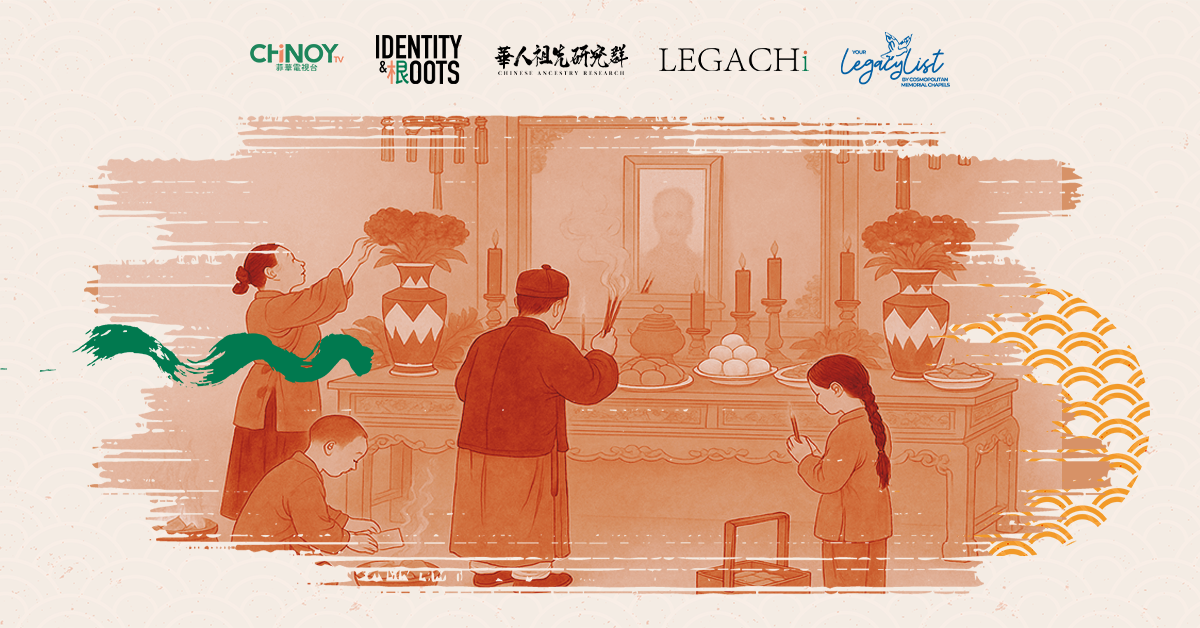Ghostbusting the Ghosts out of Ghost Month

A Month Wrapped in Shadows — and Ghostbusted Free
Every seventh lunar month, the whispers return: “It’s Ghost Month — be careful.” Some avoid travel. Others refuse to wed. Shops close earlier, and the air is thick with superstition.
But here’s the truth: this fear never belonged to Zhōngyuán Jié 中元節. The festival was never meant to be about hauntings, ghouls, or misfortune. What we call “Ghost Month” is the product of mistranslation and layers of misunderstanding. At its heart, Zhōngyuán Jié 中元節 has always been about mercy, remembrance, and the enduring bond between descendants and their ancestors.
So grab your lantern, light your incense — and let’s step back in time to hear the real story of this extraordinary night.
The Customs We Know
Even today, the signs of Zhōngyuán Jié 中元節 surround us. Incense smoke curling skyward. Food offerings laid out with care, as if beloved family members might still come home to eat. River lanterns drifting through the night, each one a soft light guiding souls along their way. Paper offerings crackling into ash, rising like whispers of remembrance.
These are not gestures of fear. They are rituals of love. And to understand their true meaning, we must journey back in time to the very first roots of this festival…
A Tale from Long Ago
To truly understand Zhōngyuán Jié 中元節, we must go back — not decades or centuries, but thousands of years. Imagine ancient China, as summer turns to autumn. The first grains were ripening, the air carried the crisp breath of early autumn, and families prepare simple offerings from the new harvest.
They do not eat until their ancestors have been fed. Bowls of millet, fruits, and wine are placed before family altars. These earliest rites were not born of fear, but of gratitude. The living paused to acknowledge the generations who tilled the soil before them, who gave life to the family line, who still lingered as unseen guests at the table.
This is where the festival’s roots lie: a rhythm of remembrance and reciprocity, not superstition.
The Three Yuans — Heaven, Earth, and Water
As centuries passed, these humble harvest rites became woven into the spiritual imagination of the people. By the Eastern Hàn 東漢 dynasty (25–220 CE), Daoism had already begun to organize itself into rituals and liturgies. Out of this blossomed the idea of the Three Officials 三官 — Heaven, Earth, and Water — each entrusted with a cosmic role: the Heavenly Official granting blessings, the Earthly Official pardoning sins, and the Water Official washing away misfortune.
To honor them, Daoist texts of the Southern–Northern Dynasties 南北朝 (420–589 CE) fixed three great festival days in the year, the Three Yuans 三元:
- Shàngyuán Jié 上元節 (1/15) — blessings from Heaven.
- Zhōngyuán Jié 中元節 (7/15) — mercy and absolution from Earth.
- Xiàyuán Jié 下元節 (10/15) — cleansing by Water.
It was within this Daoist framework that Zhōngyuán Jié 中元節 crystallized into the seventh month festival. Imagine families gathering on this night: petitions raised, incense offered, prayers sent upward with the hope that not only they, but also their departed kin, might share in mercy. It was never about hauntings — it was about compassion that crossed even the boundary of death.
Daoist Mercy, Buddhist Deliverance
Yet the story does not end there. Another current soon joined this river. Buddhism, first entering China in the Eastern Hàn (around 67 CE), had by the Liáng 梁 dynasty (502–557 CE) become firmly rooted. In 538 CE, Emperor Wǔ of Liáng 梁武帝 formally established the Ullambana Assembly 盂蘭盆會, to be held on the same seventh month, fifteenth day.
At its center was a story that resonated deeply with Chinese hearts: the monk Mùlián 目連, who sought to save his mother from suffering as a hungry spirit. His devotion, prayers, and offerings of food delivered her from torment. The moral was unmistakable: filial piety transcends the grave. A child’s love can reach even the unseen.
By the time of the Táng 唐 dynasty (618–907 CE), these two traditions had fused into one. Daoism offered the calendar, the cosmic officials, and the promise of mercy; Buddhism brought the tale of deliverance and the drama of filial devotion. Together they deepened Zhōngyuán Jié 中元節 into a night of remembrance, absolution, and love — not of fear.
From Fusion to Distortion
Over the centuries, new layers gathered on the festival. Daoist stories of the underworld’s courts, with their judges and punishments, grew vivid in opera and legend. Buddhist images of èguǐ 餓鬼 — the hungry spirits — stirred imaginations with their grotesque depictions of suffering. These were never meant to terrify; they were moral tales, urging compassion, moderation, and filial devotion.
But a shift came when guǐ 鬼, once meaning simply spirit or soul, was flattened into the English word ‘ghost.’ With that single mistranslation, the entire mood of the festival changed — and suddenly, what was once remembrance and mercy needed a bit of ghostbusting. In English, “ghost” arrived heavy with Western baggage — haunted houses, sinister ghouls, halloween masks, and echoes of a fiery hell drawn from western religious imagery. What began in China as a night of remembrance and mercy was recast as a month of dread.
By the modern era, this distortion hardened. The seventh month was widely branded as “Ghost Month.” Families were told not to marry, not to travel, not to start new ventures. What was once a season for honoring ancestors became overshadowed by superstition and fear.
But here is the truth: this is not the inheritance our forebears left us. It is the residue of mistranslation and misunderstanding. At its heart, Zhōngyuán Jié 中元節 has never been about fear — it has always been about love.
Restoring the Ancestral Heart
When we strip away the mistranslations, the superstition, and the imported fears, what remains is something profoundly human: the desire to remember those who came before us. Zhōngyuán Jié 中元節 is not about warding off spirits — it is about setting a place for family who never truly leave us. It is about mercy that embraces both the living and the departed.
Every stick of incense, every bowl of rice, every lantern that drifts upon the water speaks a simple truth: we are not alone. Our ancestors walk with us still. The seventh month is not a time to shrink back in fear, but a season to lean forward in love.
For those of us searching our family roots, this festival holds special power. It reminds us that genealogy is not just names and dates on a tree. It is a living conversation — between us and those who tilled the soil, bore the hardships, and handed down the stories that shaped who we are.
A night of remembrance, of mercy, of filial devotion that endures beyond the grave.
Not Ghost Month, but Hungry Souls’ Month.
Not of fear, but of love.
So let us ghostbust the ghosts out of Ghost Month and observe Zhōngyuán Jié 中元節 for what it truly is.
About the Author

About the Editor

